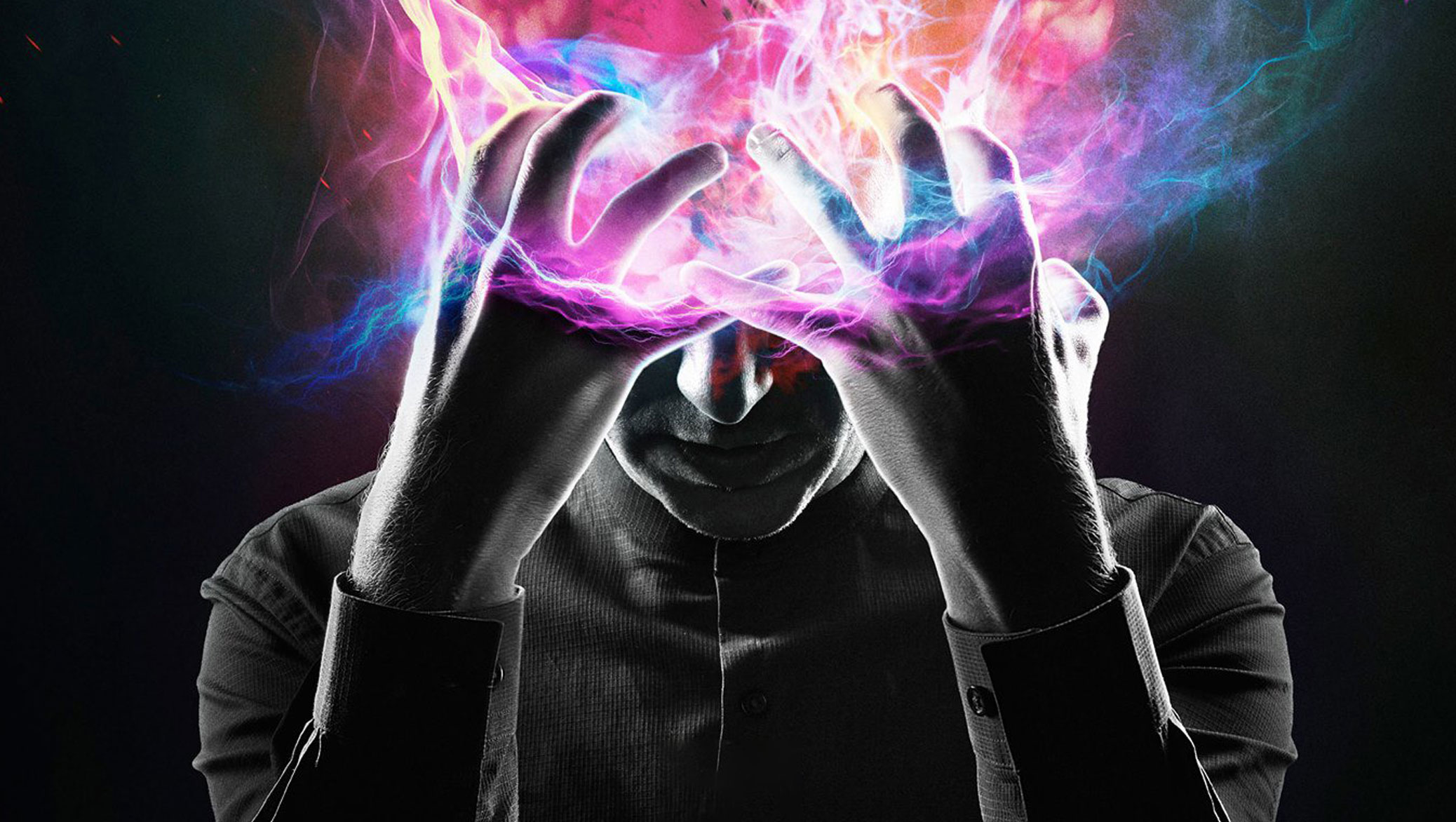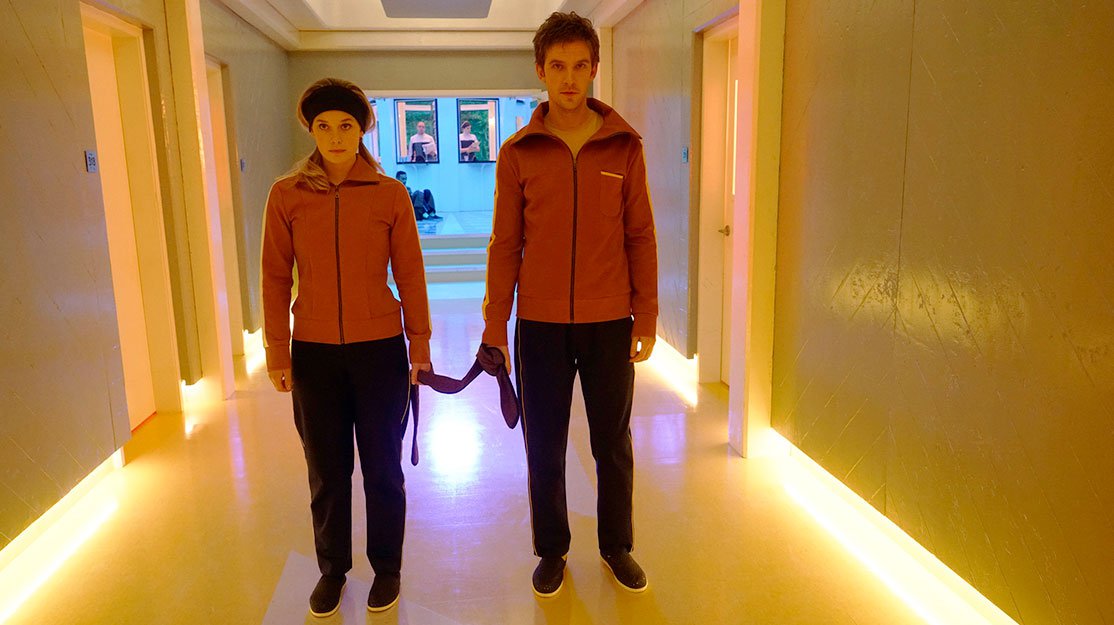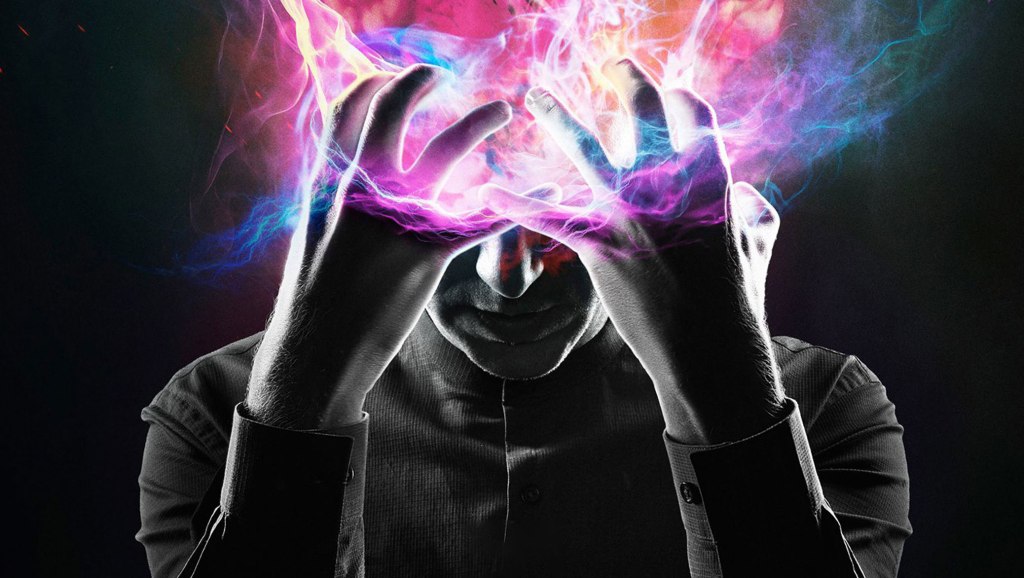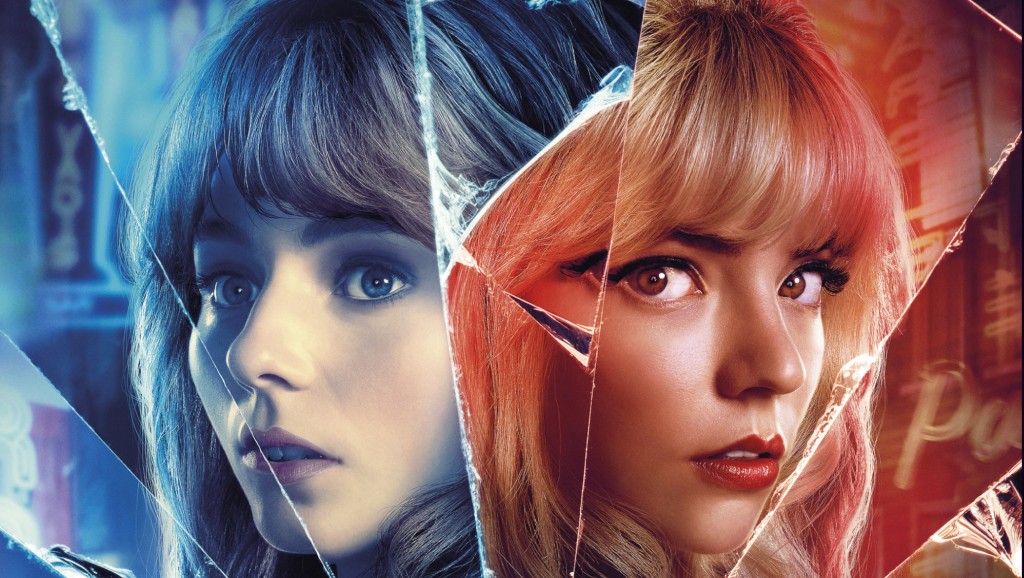
 Without a shadow of a doubt, Legion is one of the best TV shows of 2017.
Without a shadow of a doubt, Legion is one of the best TV shows of 2017.
“David, your whole life people told you that were sick. What if I told you that’s a lie? What if I told you, every memory you have of mental illness: voices, hallucinations, was just your power? And what if I could do more than just tell you? What if I could show you? Help you re-write the story of your life?” – Melanie
If you’ve seen Fargo TV series then you would be familiar with Noah Hawley’s creative vision. For Fargo his style was a blended mixture of Coen brother humour alongside quirky yet morally questionable characters. His artistic narration is expressed as what I call re-imagined circular storytelling. He abandons the traditional and standardise format of television language that we’re all familiar with – the pre-credit scene, the opening credits, the character introduction and case, the investigation, the plot twist, the conclusion and the end credits. It’s replaced by something unconventional and organic. Each episode is a unique and self-contained journey into the curious unknown, slowly evolving into the unexpected spectacular. The past is the present and the present is the past. The beginning is the end and the end is the beginning. Nothing is introduced without meaning because one way or another it will serve a greater purpose and come back around. Because each episode pushes the limit on the theme that’s explored, the balanced intertwining of the story elements will leave you with a singular feeling – excitement.
Legion mimics the same storytelling construct but gains a greater freedom given its subject. Based on the characters from the Marvel universe, Legion is the story about David Heller (Dan Stevens), a troubled young man diagnosed as a schizophrenic. The massive “but” in the question is that he doesn’t realise the full extent of his powers. He’s a mutant with no limitations and that discovery will change his life forever.
The best thing about Legion – this is unlike anything you’ve seen on TV and in the case of Hawley’s artistic direction, Legion rewrites the rules on how a TV show can be explored.

The most distinctive thing about the show is its visual storytelling. As a viewer, Legion intentionally messes with your perception as if you’re crazy. On comparison it’s like watching Inception meets Being John Malkovich but without the rules. Because what this show does so creatively is examine a mental health condition by literally entering the mind of someone suffering from it. The end result is a disturbed and volatile chaos of jumbled thoughts, delusions, hallucinations, projections and traumatic memories but to the viewer in a visual sense, it’s a seamless transition between the real world, the dream and astral plane world and a memory. The trick in understanding Legion is to constantly ask yourself one simple question – what is real?
To define that is a challenging task because David’s memory can be unreliable and unstable. Even to ascertain the year that Legion is set is difficult and hard to pin down. For example Clockworks psychiatric hospital has a psychedelic 70s feel, full of desaturated autumn colours, Summerland is given a warm and peaceful complexion in comparison to the real world where the colours are more or less neutral, cold and brutally modernistic. In fact, each memory that is presented is reconstructed for our benefit – David’s memories (his mind palace) are a combination of real life or delusional events mixed with a personal safe haven.
How Legion plays around with those elements is interesting. It dynamically shifts the aspect ratio from 16:9 full frame to 16:9 cropped with black bars – a 2.35:1 cinematic setting. Memories can go forwards, backwards, pauses or become glitchy as if someone was controlling a remote control or dynamically scrubbing through a live editing of a video. The same happens with the audio – it’s sped up, slowed down, distorted, overlaid or frequently repetitive in a brainwashed manner. Memories can have different perspectives or viewpoints, filling a gap where information is lost or misunderstood. Last but not least, light and tone plays a key factor. Dream-like sequences often used to symbolise David’s childhood are idyllic. For disturbing or dangerous sequences, the colour red is flashed upon our screens like a subliminal message as darkness looms. Legion even goes as far as playing around with the format itself. Comedy instantaneously switches into horror, live action turns into animation, colour transitions to black and white and cinema language transforms from a talkie to a silent movie and back again.
Stylistically, Legion uses its visual storytelling as a sensory overload to convey not only David’s perception of the world and how his mind operates but to provide fragments and clues in order to piece together David’s complicated history.
“I know, I don’t have to be afraid. But I am because look at you. All of you. You’re gods, and someday you are going to wake up and realize you don’t have to listen you us anymore.” – The Interrogator
Legion can be viewed as an eight part therapeutic exercise. Whether it’s Melanie (Jean Smart) or members of Division 3, David’s power holds a great interest to both parties and both sides take different approaches to “cure” him. One side is more understanding and compassionate, the other more militant, fearful and threatening.

The commonality they share is the stringent belief that David has unlocked potential which can either be used for good or be the ultimate destroyer of worlds. David is essentially the anti-hero of the Marvel Universe, capable of anything that he puts his mind to. The only thing they’re unprepared for is that David’s mind has a shared occupancy, something parasitic in nature – the demon with the yellow eyes.
Unlocking David’s gift is half the battle. Mental barriers or blockers persistently and aggressively hide the real truth about David’s state of mind. Therefore each chapter in Legion is a self-discovery on what David is capable of, accessing his mind like a hard drive to locate the triggers that explains his behaviour.
The one thing that keeps David level-headed and grounded is his love for Syd (Rachel Keller). It’s an awkward and reciprocal romance given her mutant ability and over the course of the eight episodes, they find creative ways to be together which coincides with David’s attempt to control his powers whilst fighting an enemy within.
Probably the most defining episode of the season (and one of the best episodes of the year so far) belongs to Chapter 7. It’s a beautiful orchestral synchrony, building up to its crescendo as David helps the group get out of a very tight situation. The obvious influences of Inception and The Matrix are fully realised – everything about David’s past, his mutant gift and the visual style of the show is given a grand pay off.
To put it simply, Legion is a work of art, a refreshing take on the popular comic book genre. The clever and distinct combination of the story, the characters and the visuals already makes this show stand out from the rest. With outstanding performances by Dan Stevens and Aubrey Plaza, this is a thrill ride not to be missed as it will leave you with a singular feeling…
Excitement.






Don’t Be Shy – Leave a Reply